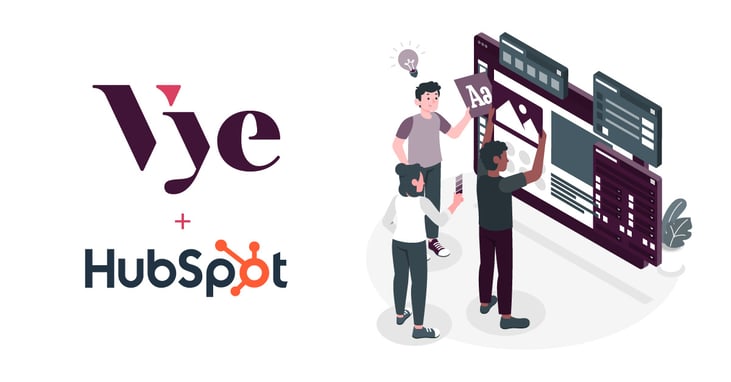
Let's be honest, website development can feel like a bit of a black hole. You know it's important, but how much should you really invest?
As experts who've helped countless businesses navigate this process, we can tell you this: your website isn't just a cost — it's an investment. And like any investment, you need a smart strategy to see real returns.
The true cost of cutting corners on website development
 We get it. Budgets are tight, and it's tempting to cut corners. But here's the thing: "good enough" websites rarely are. In fact, they often end up costing more in the long run. Why? Because they miss out on crucial elements that drive revenue and future-proof your business.
We get it. Budgets are tight, and it's tempting to cut corners. But here's the thing: "good enough" websites rarely are. In fact, they often end up costing more in the long run. Why? Because they miss out on crucial elements that drive revenue and future-proof your business.
When you prioritize short-term savings over long-term strategy, you risk falling short in critical areas, such as:
Limited visibility in search results
A beautiful website is worthless if no one can find it. Investing in robust SEO, including keyword research and a strong content strategy, is crucial for attracting your ideal customers organically. Without it, you'll be invisible to the very people you're trying to reach.
Low conversion rates
Traffic is great, but it needs to translate into leads and sales. This requires clear calls to action, intuitive navigation, and a seamless user experience. Cutting corners here means leaving money on the table.
Accessibility and legal risks
Overlooking accessibility isn't just bad practice — it's bad business. Ignoring a significant portion of your potential audience and risking potential legal issues is simply not worth it. Building an inclusive website from the start is not only ethical, but also makes good business sense.
Poor website performance and user experience
Slow loading times are a silent deal-breaker. Optimizing images, code, and leveraging CDNs can make all the difference in user experience and conversion rates. A website that frustrates users with slow speeds and clunky navigation will drive potential customers away.
In fact, almost 39% of users have lost interest in websites due to slow image loading, and retailers lose around $2.6 billion annually due to poor website performance.
What a high-performing website delivers
 |
 |
 |
The real cost of a website isn't just the initial price tag – it's the missed opportunities caused by poor planning and execution. A website done right is an engine for growth, delivering:
- Increased organic visibility: A well-optimized website attracts the right audience through search engines, driving qualified traffic and leads.
- Higher conversion rates: A strategic website converts visitors into customers with clear calls to action, compelling content, and a user-friendly experience.
- Strong brand credibility: A professionally designed and developed website builds trust and positions your business as an authority in your industry.
- Scalability and future growth: A well-planned website adapts and grows with your business, accommodating new features, functionalities, and content as your needs evolve.
So, what should your website cost?
 It's a question we get a lot, and while there's no one-size-fits-all answer, we can break down the core investments that make up a successful website project.
It's a question we get a lot, and while there's no one-size-fits-all answer, we can break down the core investments that make up a successful website project.
Core website investments:
- Domain name and hosting ($20-200/month): Your digital address and the service that keeps your website live and accessible.
- SSL security certification ($0-1,500/year): Essential security that protects your data and builds visitor trust.
- Design and development ($2,000-15,000): The strategic planning, custom design, and technical build of your website.
- CMS implementation ($3,000-10,000): Setting up the system that lets you easily manage and update your website content.
- Additional functionality ($5,000-10,000): Custom features like e-commerce, integrations, or interactive elements.
For most B2B businesses, this typically translates to total project investments of:
- Basic business websites: $5,000-15,000
- Mid-range websites with custom functionality: $15,000-30,000
- Enterprise-level websites with complex integrations: $30,000-75,000+
Keep in mind these numbers are starting points. Your specific needs will ultimately determine the investment. Every business is unique, and your website needs to be tailored to your specific goals, just like your marketing strategy or sales process.
Think about it: a startup with ambitious growth plans will have different requirements than an established enterprise looking to refresh its online presence. A company focused on e-commerce will need different functionalities than a service-based business.
That's why pre-packaged website solutions often fall short. They simply can't address the nuances of your individual business needs.
Factors that shape your website strategy
Beyond these core costs, several key factors will shape your project:
- Your business goals: What are you hoping to achieve with your website? Lead generation, brand awareness, e-commerce? Clearly defined goals will guide your investment strategy.
- Required functionality: Do you need complex integrations with existing systems? Custom tools or interactive elements? The complexity of your website's functionality will impact the cost.
- Content management needs: How much content will you be creating and managing? Choosing a user-friendly CMS like HubSpot can save time and resources in the long run.
- Scalability: Plan for future growth. Ensure your website can adapt to your evolving needs without requiring a complete overhaul down the line.
The platform decision: Choosing the right CMS

A robust Content Management System (CMS) is crucial for your website's long-term success. While we commonly work with WordPress and HubSpot CMS platforms, the key is selecting a system that supports your team's needs and business goals.
The right CMS should allow you to:
- Update content quickly and confidently—no coding required
- Launch new pages using proven templates
- Make informed decisions with built-in performance tracking
- Connect seamlessly with your existing marketing tools
This means less time wrestling with technology and more time focusing on what matters most – creating valuable content and delivering business results.
See what successful websites look like
We understand that website projects can feel overwhelming. That’s why we help businesses create high-performing websites that drive results—without cutting corners.
Ready to see strategic web design in action? Explore our recent website projects and discover what's possible for your business.


